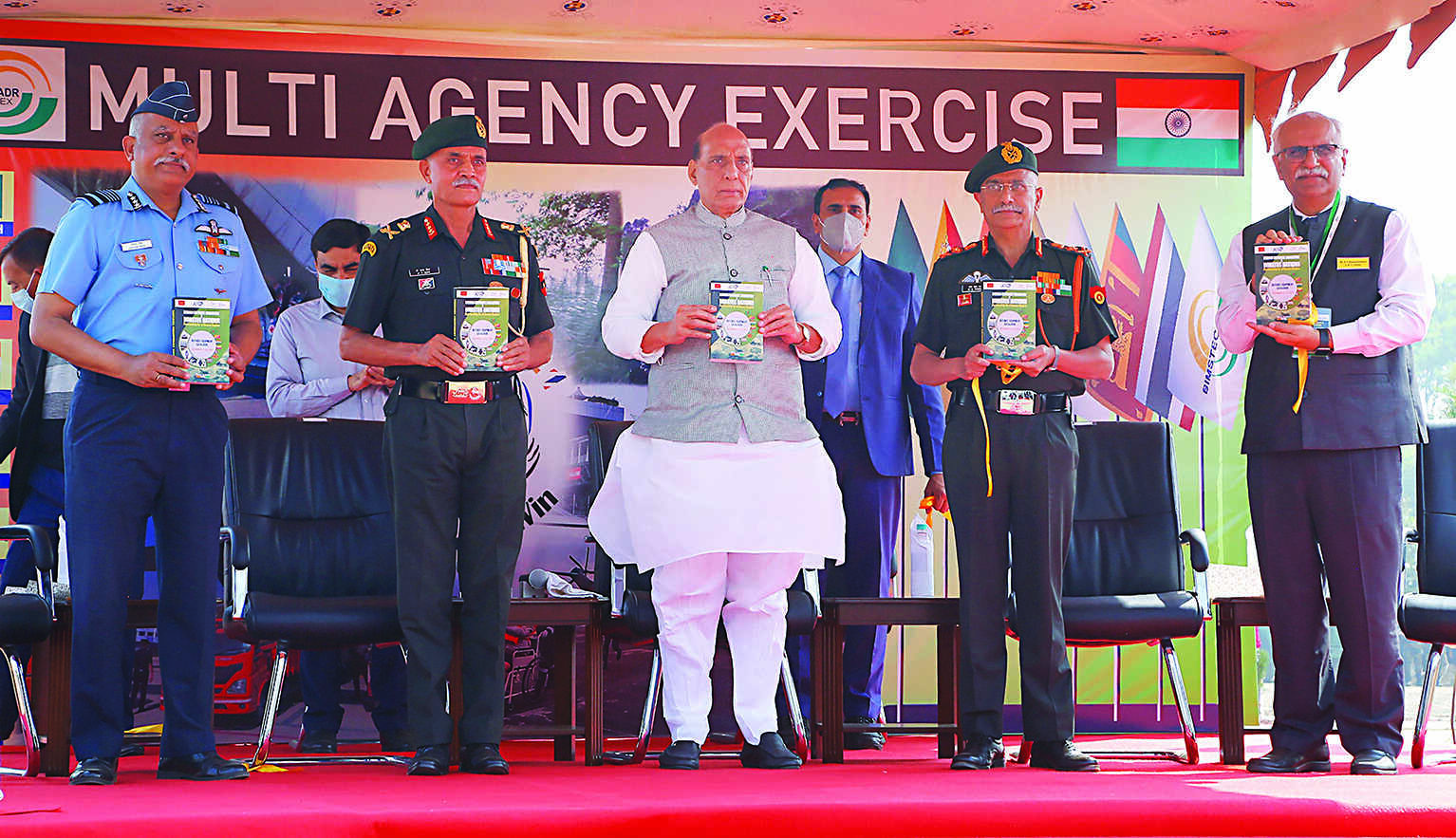'BIMSTEC nations stood by each other in trying times'
The exercise aims to develop capabilities in disaster mgmt aspects for BIMSTEC nations

Pune: Defence Minister Rajnath Singh on Tuesday said the BIMSTEC countries have stood by each other under trying circumstances, like cyclones, Tsunamis, earthquakes and floods.
Singh also said the BIMSTEC (Bay of Bengal Initiative for Multi-Sectoral Technical and Economic Cooperation) region has the potential to build a symbiotic partnership amongst like-minded nations, by strengthening the existing civilisational bonds.
He was speaking at PANEX-21, a trans-national, multi-agency exercise organised at the College of Military Engineering at Pune in Maharashtra, where he witnessed a demonstration related to a natural disaster scenario in the time of COVID-19 pandemic and the response of humanitarian aid and disaster management.
The exercise aims to foster jointness and develop capabilities in disaster management aspects for the BIMSTEC nations.
The BIMSTEC regional organisation comprises Bangladesh, Bhutan, Myanmar, Nepal, Sri Lanka and Thailand, besides India. Singh spoke about India's vision for the Indian Ocean Region (IOR) and the concept of SAGAR - Security and Growth for All in the Region - saying it has distinct and inter-related elements.
These include deepening the economic and security cooperation in the littorals, enhancing capacities to safeguard land and maritime territories, working towards sustainable regional development, blue economy, and promoting collective action to deal with non-traditional threats like natural disasters, piracy and terrorism, he said.
Singh said the recent decades have witnessed a series of calamities like cyclones, Tsunamis, earthquakes and floods, that caused large scale deaths and destruction. "It is in times of such adverse conditions that the depth of understanding and friendship can best be gauged. And I have no hesitation in acknowledging that our countries have stood by each other under such trying circumstances," the Union minister said.
He said it will remain India's endeavour to facilitate, support and assist in all possible ways and develop measures that aid in regional cooperation, which benefit all the member states, in the Bay of Bengal region.
Singh said the BIMSTEC region has the potential to build a symbiotic partnership amongst like-minded nations, by strengthening the existing civilisational bonds.
"And building upon the potential, this event provides a fresh impetus for creating a more cohesive mechanism to respond to the Humanitarian Assistance and Disaster Relief (HADR) challenges in our region," he said.
The minister said has no doubt that this exercise will facilitate improved coordination for meeting future challenges witnessed during numerous cyclones, earthquakes like the one in Nepal in 2015, and more recently as a result of COVID-19.
"I am sure this exercise will create the necessary groundwork for the BIMSTEC nations to develop protocols, involving all stakeholders, to respond to disasters in future. It should remain our earnest endeavour to consolidate the lessons learnt and publish a Standard Operating Procedure (SOP) to aid member states, hasten the conduct of disaster relief operations and save precious human lives," he said.
Singh said the scenario of PANEX-21 envisaged a natural disaster and added a new dimension for the protection of those involved in relief operations, as experienced during the pandemic.
"This brought in the dichotomy of maintaining social distancing while executing relief operations. Today's multi-agency exercise depicted the immense challenge such a situation can present for all nations, while assisting each other, to save invaluable human lives. Natural disasters like earthquakes, floods, fires and cyclones bring to the fore the need for speed while undertaking relief operations," he said.
Singh said efforts by a single nation directly affected by natural disaster may quite understandably fall short due to the huge magnitude of such disasters.



